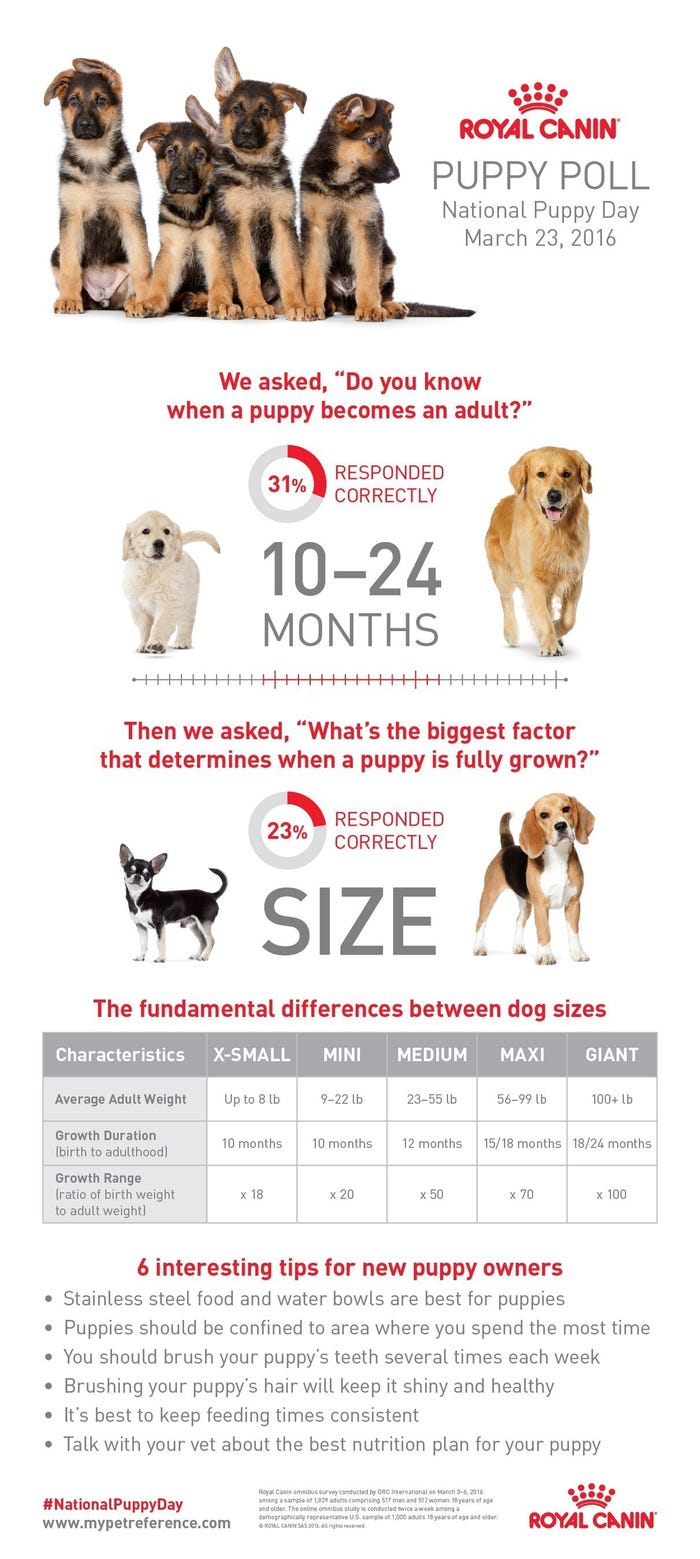Royal Canin offers tips and survey findings to help people support growth and development of their young canine companions.
March 23, 2016

Royal Canin, a global leader in pet health and nutrition, commissioned a survey of U.S. adults in March 2016 that reveals uncertainty about when the puppy stage ends.
The survey found:
* Most adults are uncertain when puppies transition to adulthood. In all, 50% of people say they know when their pet has outgrown the puppy stage, when, in fact, only 31% correctly responded that the transition occurs between 10 and 24 months of age.
* When asked what the indicators are for graduation into adulthood, more people mentioned the puppy's behavior (28%) and adult teeth coming in (24%) than the correct answer of the puppy's size (23%).

These findings confirm what Royal Canin has known anecdotally for years: Most people think a puppy becomes an adult around one year of age, and they are usually surprised to learn that there is actually a wide range of between 10 and 24 months, depending on a puppy's size and breed, when a puppy should be considered full grown (Infographic). This is important because feeding puppy food to a dog for too long or starting a puppy on adult food too early is not ideal for proper growth.
"The nutrients in a puppy's food need to be properly balanced, because excesses can be just as detrimental to your puppy as deficiencies," said Dr. Brent Mayabb, an experienced veterinarian and Royal Canin vice president of corporate affairs. "From proteins, lipids and carbohydrates to vitamins and minerals — if these nutrients are fed in the wrong proportions, nutritional deficiencies or excesses can occur, which could lead to long-term damage to the puppy's health and wellness."
Mayabb also recommended:
* Vaccinations are important for a puppy as they help prevent contagious, potentially life-threatening diseases. Some are required, while others are recommended. A veterinarian will help choose the vaccination program best suited for a puppy, depending on risk factors such as lifestyle and environment.
* When selecting a quality puppy food, choose a food that is specifically suited to the type of dog, according to the breed size, age and sensitivities or the particular features of the breed. Talk with a veterinarian about the best nutrition for your puppy.
Royal Canin is a subsidiary of Mars Inc.
You May Also Like



